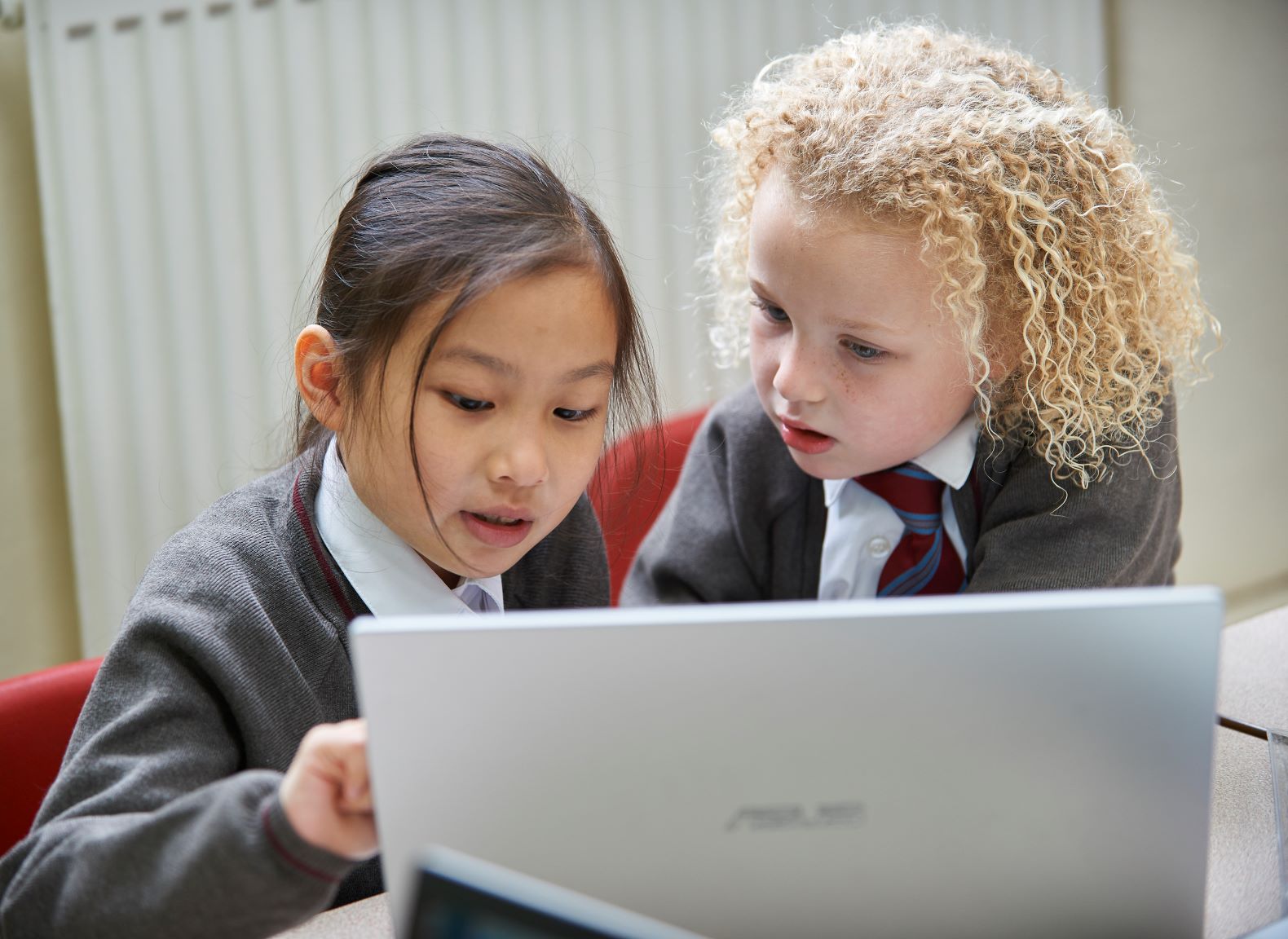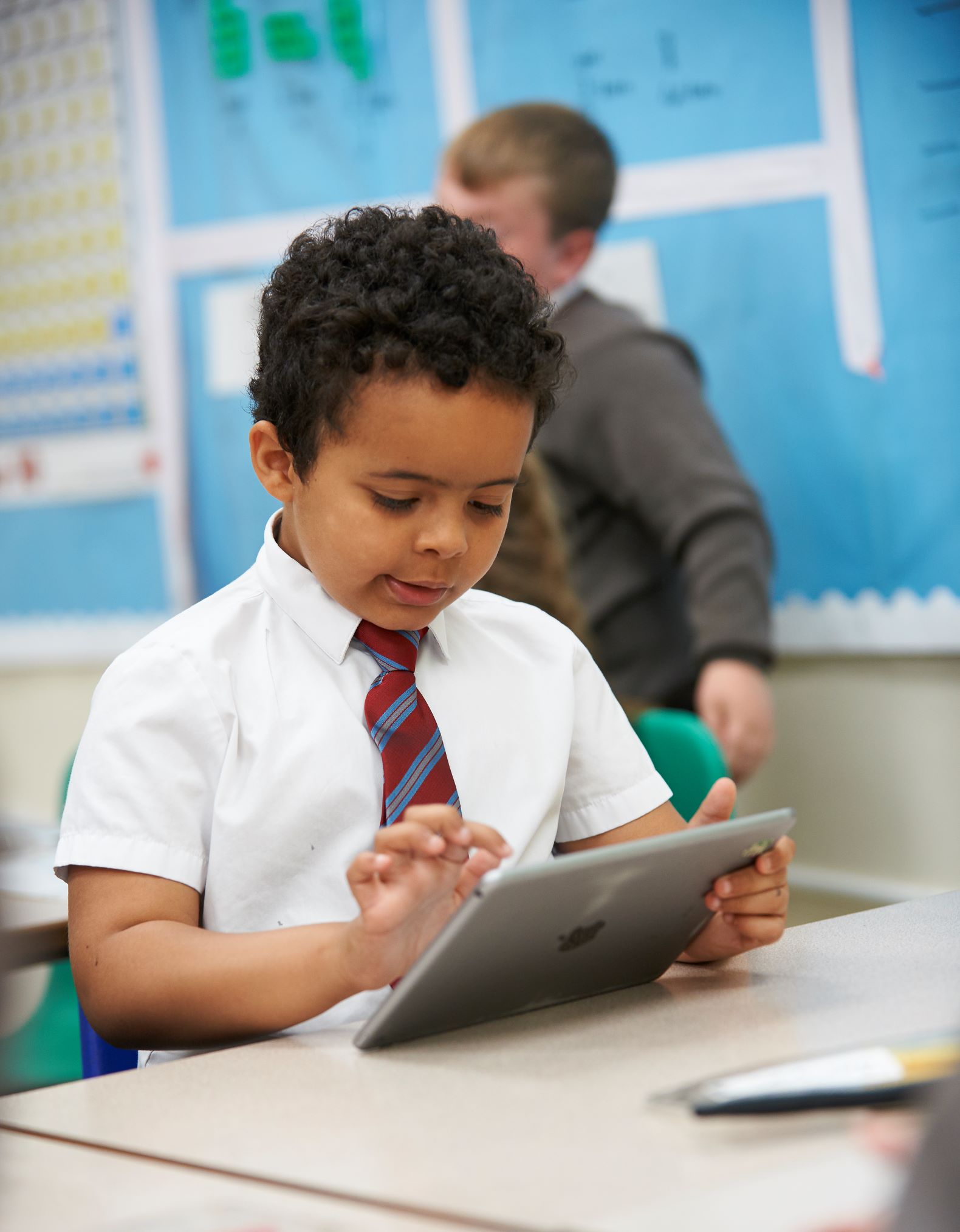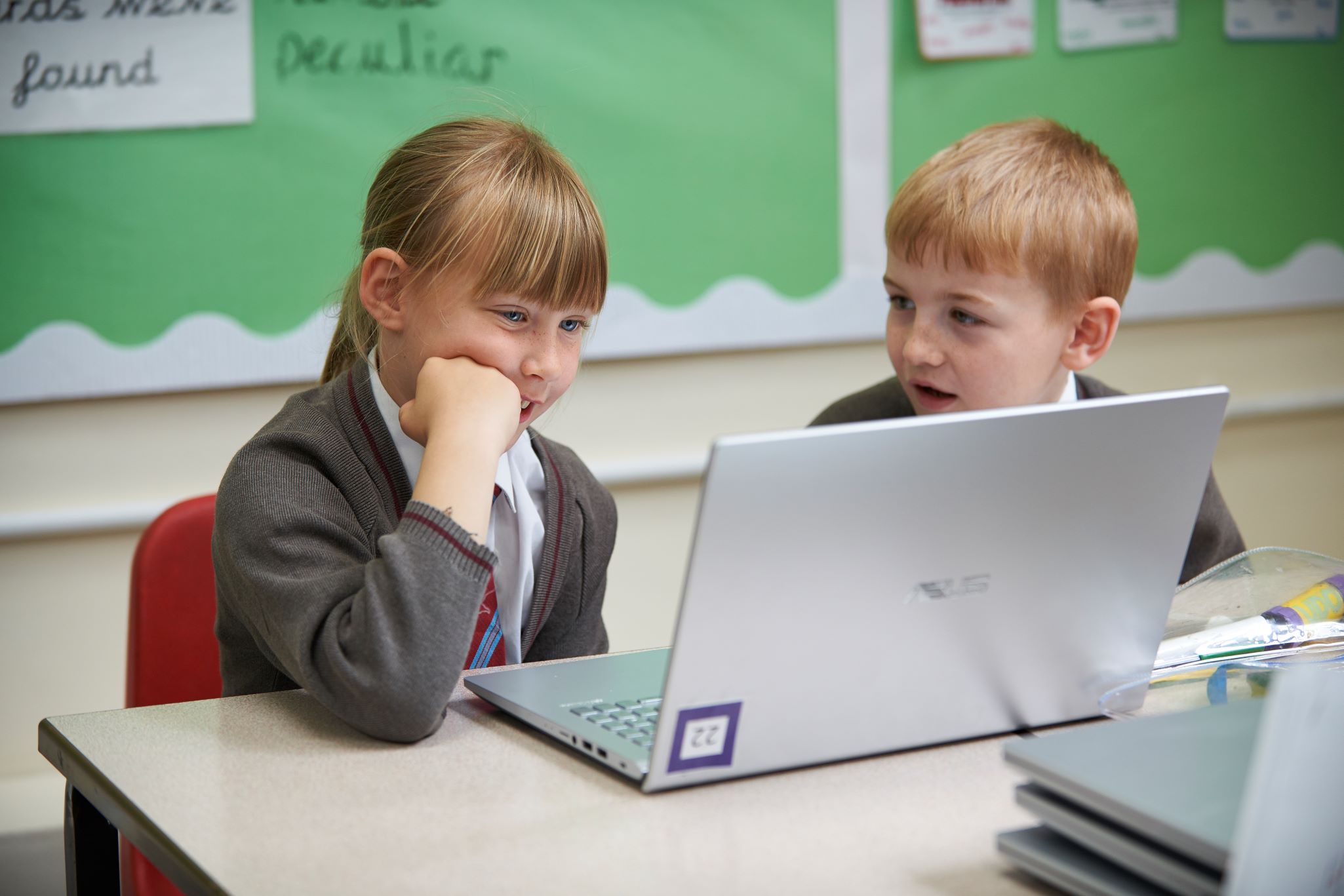Computing



Intent
At Golborne St. Thomas’, we aim to provide pupils with a creative and flexible computing curriculum that will equip all of our children with the computing and digital literacy skills that they need thrive in a rapidly-changing world controlled by technology. Our computing curriculum also ensures that pupils become digitally literate (able to use technology to express themselves and develop their ideas fully) at a level suitable to be active participants in a ever-increasing digital world. We recognise the importance of teaching our pupils how to become responsible, creative, kind and confident digital citizens, whilst promoting a balanced digital life. At Golborne St Thomas’, we maintain that safety is of the utmost importance and recognise that even though technology is amazing in so many ways, it can pose dangers. Therefore, we endeavour to teach our children how to use technology safely and respectfully, whilst being able to recognise and appropriately react to online dangers.
Implementation
At St Thomas’, children have access to the latest technology. As we believe that technological skills are paramount to our children’s future successes, we have therefore deployed one-to-one iPads in Years 1-6, with children in EYFS also having access to iPads. This programme allows for computing skills to be taught both discretely and across the wider curriculum. Consequentially, children are exposed to inspiring and innovative opportunities to learn using technology. For computing lessons, we follow the Knowsley Scheme of Work. Their computing curriculum is designed to engage children presenting them with different challenges, ensuring that their computing skills are being built on each year.
Impact
Our approach to the wider curriculum results in engaging, practical and challenging lessons, where children not only enjoy using technology, but thrive with it. Children’s critical thinking skills flourish as well as enhanced communication skills. All of the work children produce is evident on Seesaw, a digital platform, which teachers use to assess the progress each student is making. In addition, we believe high-quality discussions taking place within lessons between staff and pupils provide children with useful feedback in order to progress. The outcomes experienced by our children prepare them for the ever-increasing digital world, give them the skills to pursue any future career they aspire to have and teaches them how to remain safe.
